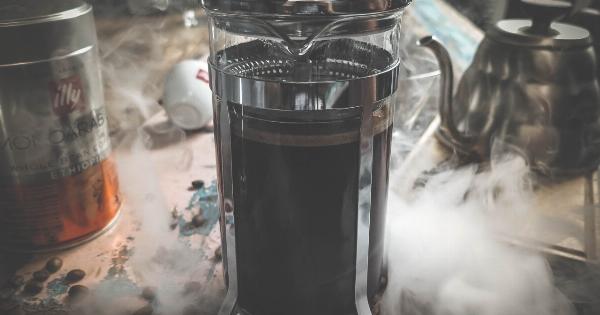Are you one of those night owls who struggle to stay awake and alert during the day? Do you find yourself reaching for a cup of coffee every few hours just to keep your eyes open? If so, you’re not alone.
Many people rely on coffee to help them function after a night of little or no sleep. But does coffee really provide the energy boost and mental clarity we need, or is it just a temporary fix? Let’s explore the dilemma of the night owl and whether coffee can truly help.
The Science of Sleep
Before we dive into the effects of coffee on our sleep-deprived minds and bodies, let’s first understand why night owls struggle with daytime alertness.
Our bodies have a built-in circadian rhythm, which is essentially a 24-hour internal clock that regulates various biological processes, including sleep-wake cycles.
For most people, this internal clock aligns with the natural light-dark cycle. However, night owls have a delayed circadian rhythm, making it challenging for them to fall asleep and wake up at conventional times.
As a result, night owls often experience insufficient sleep, leading to daytime drowsiness and reduced cognitive function.
The Role of Coffee in Sleep Deprivation
One of the most popular strategies to combat sleepiness is consuming coffee. Coffee contains caffeine, a natural stimulant that can help improve alertness, attention, and focus.
When consumed, caffeine enters the bloodstream and blocks adenosine receptors in the brain.
Adenosine is a neurotransmitter that gradually accumulates in the brain throughout the day, making us feel sleepy. By blocking the adenosine receptors, caffeine prevents us from feeling drowsy and enhances wakefulness.
Additionally, caffeine stimulates the release of adrenaline, which further promotes alertness and reduces the feeling of fatigue.
The Power of Coffee: Benefits and Limitations
While coffee can provide temporary relief for night owls, it does have limitations. Let’s explore both the benefits and downsides of relying on coffee as a sleep-deprivation solution.
1. Improved Cognitive Function
Coffee has been shown to enhance various aspects of cognitive function, including attention, reaction time, and memory. This can be extremely beneficial for night owls who need to perform mentally demanding tasks during the day.
Studies have also suggested that caffeine may improve logical reasoning and problem-solving skills.
2. Increased Physical Performance
For night owls who engage in physical activity, coffee can offer a boost in performance. Caffeine has been shown to increase endurance, strength, and power output, making it an excellent pre-workout beverage.
It can also help reduce the perception of exertion, allowing individuals to exercise for longer durations without feeling as fatigued.
3. Enhanced Mood and Alertness
Feeling groggy and irritable after a night of little sleep is common for night owls. Coffee can help improve mood and increase alertness, making it easier to navigate through the day.
The stimulant effects of caffeine can enhance feelings of well-being and reduce the risk of falling asleep in the midst of daily activities.
4. Temporary Solution
While coffee can provide a temporary energy boost, its effects are short-lived. The initial surge of alertness and mental clarity may fade as the caffeine wears off, leaving night owls feeling even more fatigued.
This leads to a vicious cycle of dependence on coffee, as individuals often find themselves needing more and more cups throughout the day to maintain productivity.
5. Disrupted Sleep Patterns
One of the greatest downsides of relying on coffee to combat sleep deprivation is its impact on sleep quality. Night owls often struggle with falling asleep at night, and consuming coffee late in the day can exacerbate this issue.
Caffeine has a half-life of approximately 5 to 6 hours, meaning it stays in the system for a prolonged period. This can interfere with sleep initiation and result in further sleep deprivation, perpetuating the night owl’s dilemma.
6. Potential Side Effects
Caffeine affects individuals differently, and some people are more sensitive to its effects than others.
Common side effects of excessive caffeine consumption include restlessness, jitters, increased heart rate, gastrointestinal issues, and difficulty concentrating. For individuals already struggling with sleep deprivation, these side effects can worsen their overall well-being.
Alternative Strategies for Night Owls
If relying solely on coffee isn’t the ideal solution for night owls, what other strategies can be effective in combating sleepiness and enhancing daytime performance? Here are some alternative approaches to consider:.
1. Adjusting Sleep Habits
While it may not be possible for night owls to completely shift their sleep-wake cycles, making small adjustments can help optimize sleep quality.
Establish a consistent sleep routine by going to bed and waking up at the same time each day, even on weekends. Create a sleep-friendly environment by keeping your bedroom cool, dark, and quiet, and limit exposure to electronic devices before bed.
2. Power Napping
If you find yourself feeling drowsy during the day, a short power nap can provide a quick energy boost. Keep your naps to around 20 minutes to avoid entering deep sleep, which can leave you feeling groggy upon waking.
Find a quiet and comfortable space where you can relax and recharge, but be cautious not to nap too close to your regular bedtime.
3. Light Therapy
As night owls struggle with a delayed circadian rhythm, light exposure can play a significant role in resetting their internal clocks. Try exposing yourself to natural sunlight or using light therapy devices that mimic sunrise in the morning.
This can help signal to your brain that it’s time to wake up and improve your overall alertness and energy levels during the day.
4. Exercise and Movement
Engaging in regular physical activity can help combat daytime sleepiness and boost mood and energy levels. Aim for at least 30 minutes of moderate-intensity exercise most days of the week.
It’s important to note that exercising too close to bedtime can hinder sleep quality, so try to fit in your workout earlier in the day.
5. Mindfulness and Relaxation Techniques
Practicing mindfulness meditation, deep breathing exercises, or yoga can help alleviate stress and promote relaxation. These techniques can be beneficial for night owls struggling with racing thoughts and difficulty falling asleep.
Incorporate these practices into your daily routine, particularly before bedtime, to facilitate a more restful night’s sleep.
Coffee as a Tool, Not a Crutch
While coffee can provide a temporary energy boost for night owls, it should be seen as a tool rather than a crutch. Using coffee responsibly and in moderation can help enhance cognitive function and improve daytime performance.
However, it’s crucial to address the underlying causes of sleep deprivation and explore alternative strategies to establish healthier sleep habits.
By implementing lifestyle adjustments, incorporating sleep-promoting techniques, and adopting a well-rounded approach to overall well-being, night owls can reduce their dependence on coffee and find sustainable solutions to the dilemma of daytime sleepiness.































